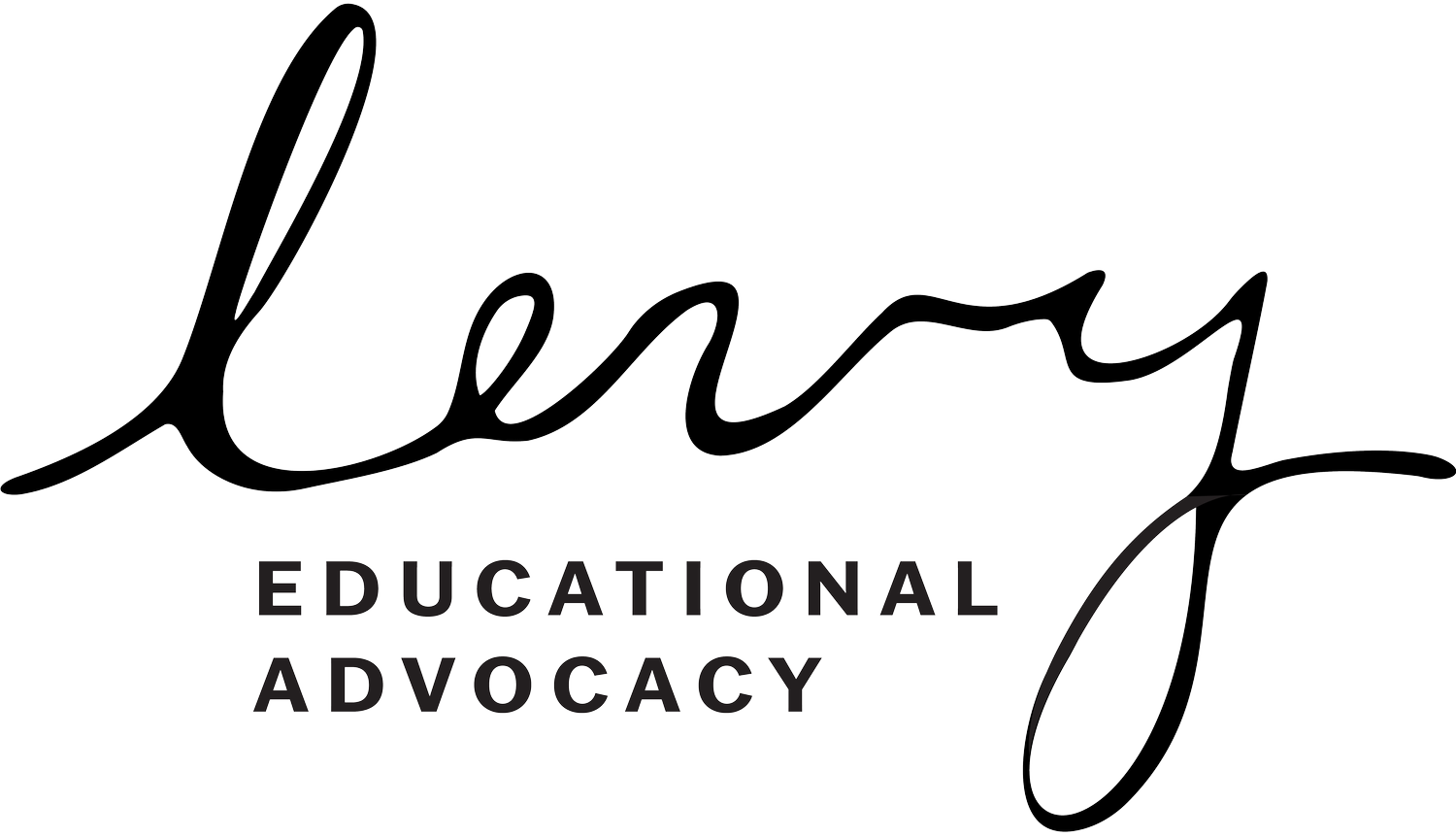Apples to Data: Making Sure Your Child’s IEP Progress is Measured Meaningfully
Parents often feel overwhelmed when trying to track how their child is doing in school, especially when juggling IEP progress notes, MTSS plans, and report cards. These documents are intended to provide insight and accountability, but too often they present inconsistent or mismatched information, leaving families asking: ‘Is my child really making progress?’
At Levy Educational Advocacy, we believe in clarity, transparency, and actionable data. One of our most important pieces of advice for families is this:
Make sure you are comparing apples to data, not apples to oranges.
What Do We Mean by That?
When schools report progress, they may use general phrases such as “making progress,” “partial progress,” or “not yet met.” While these terms sound informative, they’re not always tied to the same data sources or benchmarks. An IEP goal might say a student will decode multisyllabic words with 80% accuracy—but if the progress note simply says "improving in reading," we don't know what was measured, how, or whether it aligns with the IEP goal.
The same goes for MTSS (Multi-Tiered System of Supports) and classroom report cards. These tools should work together, not in silos. Unfortunately, families often receive a glowing report card that doesn't reflect the ongoing skill gaps noted in the IEP, or vice versa.
Tips to Ensure You’re Comparing Apples to Apples:
1. Anchor Everything to the IEP Goals
Your child’s IEP is a legal document. It includes measurable annual goals that should be supported by services and tracked by data. Progress notes should include objective metrics—such as percentages, reading levels, rubric scores, or curriculum-based assessments—that clearly connect to each goal.
2. Ask for the Data Behind the Words
If a progress note says, “Student is making good progress,” ask:
What tool was used to measure that?
Can you show me the trend over time?
How does this data compare to last quarter?
This is not being difficult—this is being a partner in your child’s education.
3. Crosswalk IEP, MTSS, and Report Cards
If your child is on an MTSS plan or receiving targeted classroom support in addition to special education services, make sure the intervention data is being shared with the IEP team. MTSS data can be an incredibly valuable piece of the puzzle—but only if it’s included in decision-making and aligned with IEP goals.
Similarly, report cards that measure general curriculum benchmarks should be reviewed in context. A “C” in reading might mask major decoding struggles—or it might reflect improvement based on scaffolding. You deserve to know what’s behind the grade.
The Importance of Relative Data
Your child’s progress should be measured in relation to their baseline, their IEP goals, and the standards used by the school. We often see mismatches, such as a child being reported as "on grade level" on a report card, but still unable to write a complete paragraph independently per their IEP goal.
This is why we stress relative, not generic, progress. Are the same tools being used each quarter? Are we looking at the same skill domains? Are we tracking both growth and areas of regression? That’s how we ensure true educational equity.
How Levy Educational Advocacy Can Help
Our team of trained advocates specializes in decoding complex educational records. We help families:
Analyze and compare data from IEPs, MTSS, and classroom reports
Identify gaps in service delivery or progress monitoring
Prepare for IEP meetings with a data-driven lens
Ensure that services are aligned with student needs, not just administrative templates
If something doesn’t feel right, or you’re unsure whether the school’s reports are painting the full picture, reach out. We’ll help ensure that your child’s progress is not just being documented, but understood and supported.
Let’s make sure we’re comparing apples to data—because your child deserves clarity, consistency, and the right support to thrive.
Contact Levy Educational Advocacy today to schedule a consultation or IEP review.
